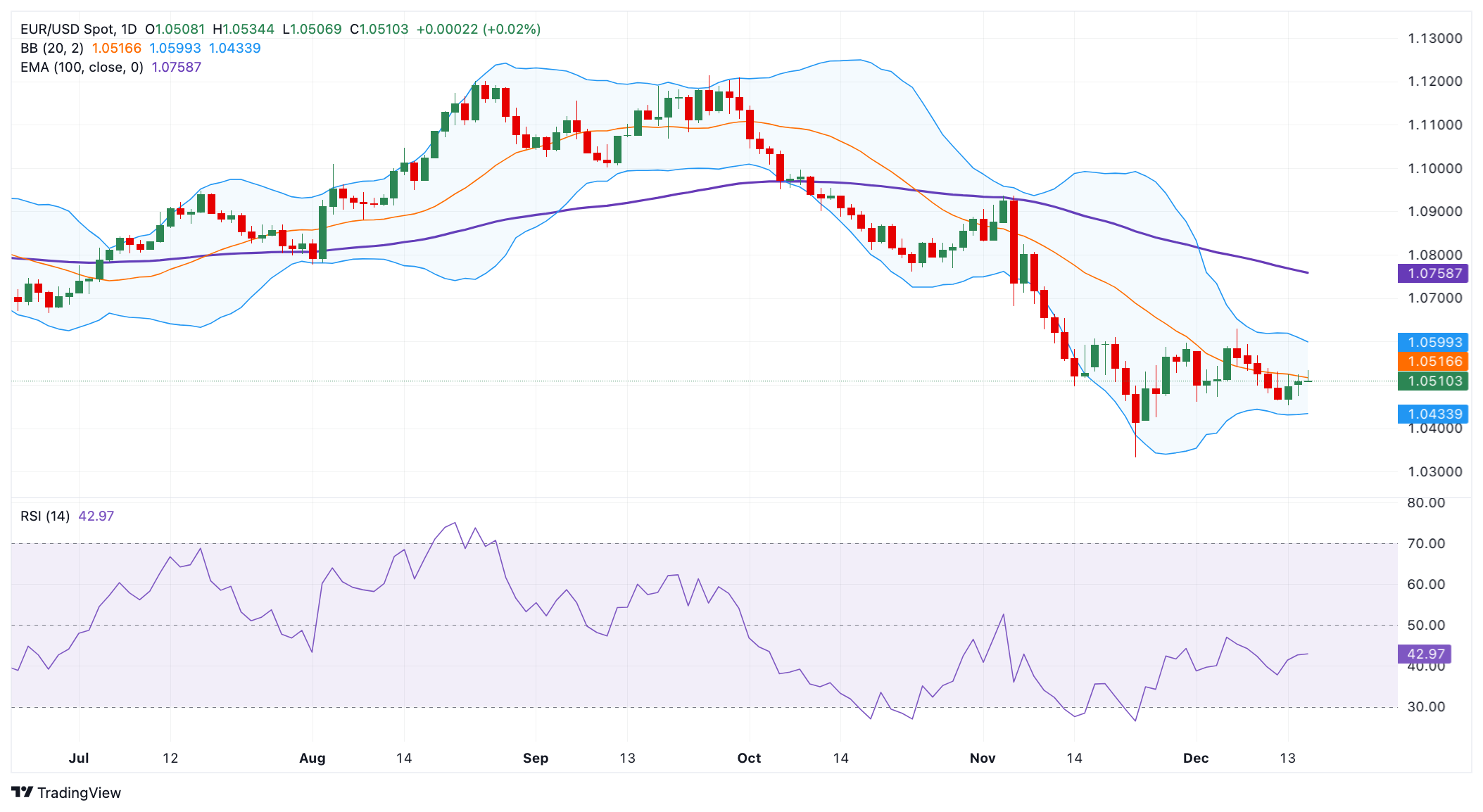EUR/USD Price Forecast: The bearish outlook remains in play near 1.0500
- EUR/USD posts modest gains to around 1.0510 in Tuesday’s Asian session.
- The negative outlook of the pair remains intact below the 100-day EMA with the bearish RSI indicator.
- The first support level is seen at 1.0433; the immediate resistance level emerges in the 1.0600-1.0610 zone.
The EUR/USD pair trades with mild gains to near 1.0510 during the Asian session on Tuesday. Nonetheless, the upside for the pair might be limited as the European Central Bank (ECB) expects to cut interest rates further if inflation settles at its 2% target as it expects.
The ECB President Christine Lagarde on Monday said, "If the incoming data continue to confirm our baseline, the direction of travel is clear, and we expect to lower interest rates further.” Meanwhile, Isabel Schnabel, the ECB's most influential policy hawk, emphasized market bets on further gradual reductions in borrowing costs in the Eurozone as the economy stutters and fears about high inflation fade.
According to the daily chart, EUR/USD keeps the bearish vibe as the price remains capped below the key 100-day Exponential Moving Average (EMA). The downward momentum is reinforced by the 14-day Relative Strength Index (RSI), which is located below the midline around 42.90, suggesting that the path of least resistance is to the downside.
The lower limit of the Bollinger Band at 1.0433 acts as an initial support level for the major pair. A decisive break below the mentioned level could expose 1.0332, the low of November 22. Extended losses could see a drop to 1.0300-1.0290, the psychological level and the low of November 30, 2022.
On the upside, the first upside barrier for the major pair emerges at the 1.0600-1.0610 regions, representing the upper boundary of the Bollinger Band and the round mark. Sustained bullish momentum above this level could pave the way to 1.0758, the 100-day EMA, en route to the 1.0800 barrier.
EUR/USD daily chart
Euro FAQs
The Euro is the currency for the 20 European Union countries that belong to the Eurozone. It is the second most heavily traded currency in the world behind the US Dollar. In 2022, it accounted for 31% of all foreign exchange transactions, with an average daily turnover of over $2.2 trillion a day, according to data from the Bank of International Settlements. EUR/USD is the most heavily traded currency pair in the world, accounting for an estimated 30% of all transactions, followed by EUR/JPY (4%), EUR/GBP (3%) and EUR/AUD (2%).

